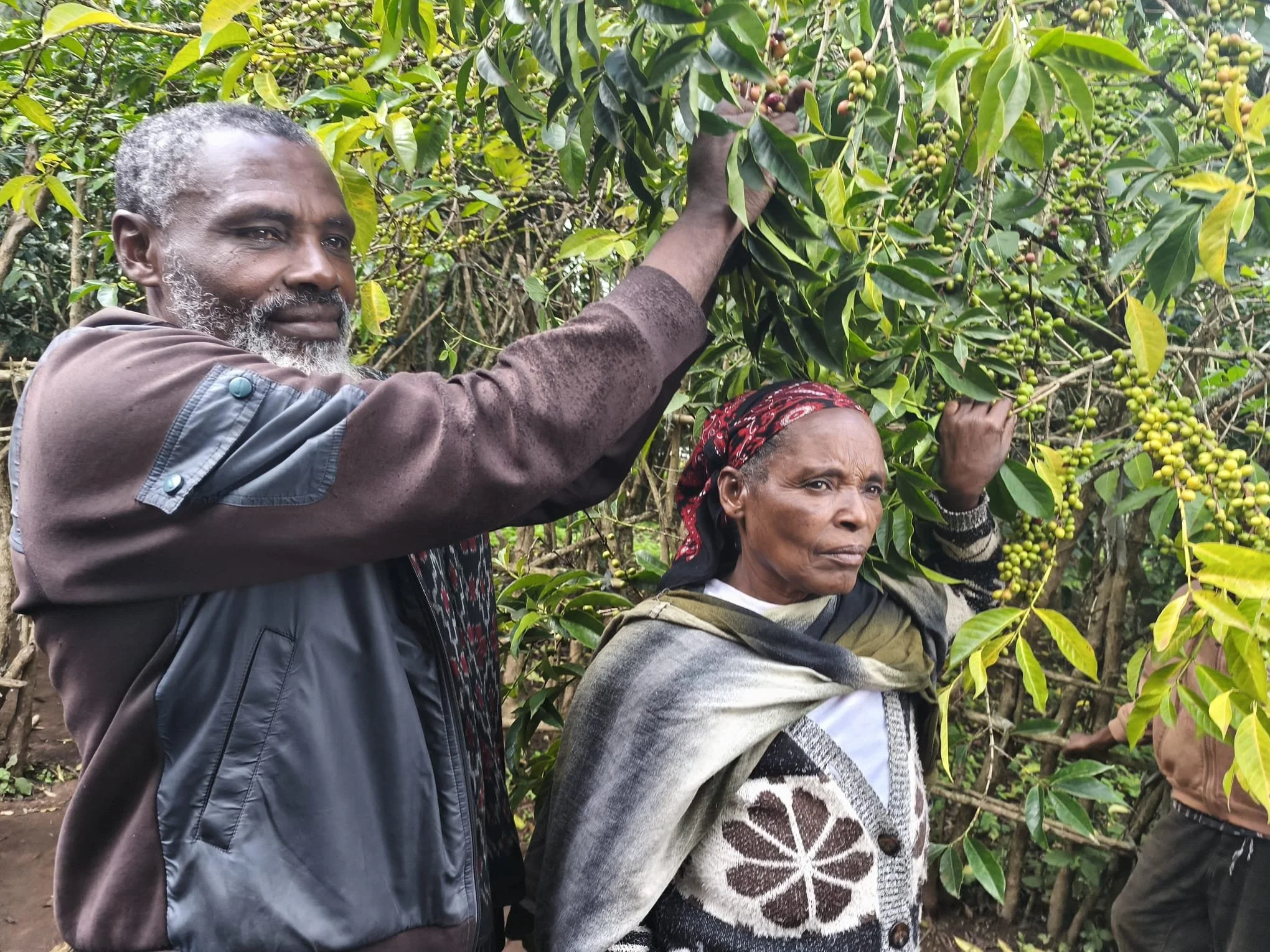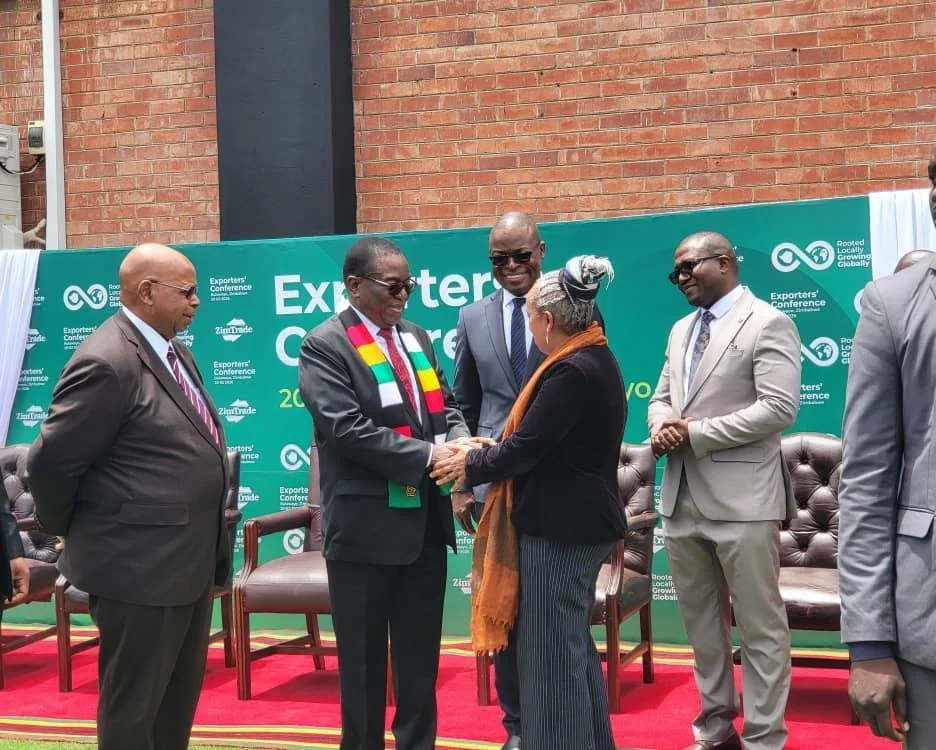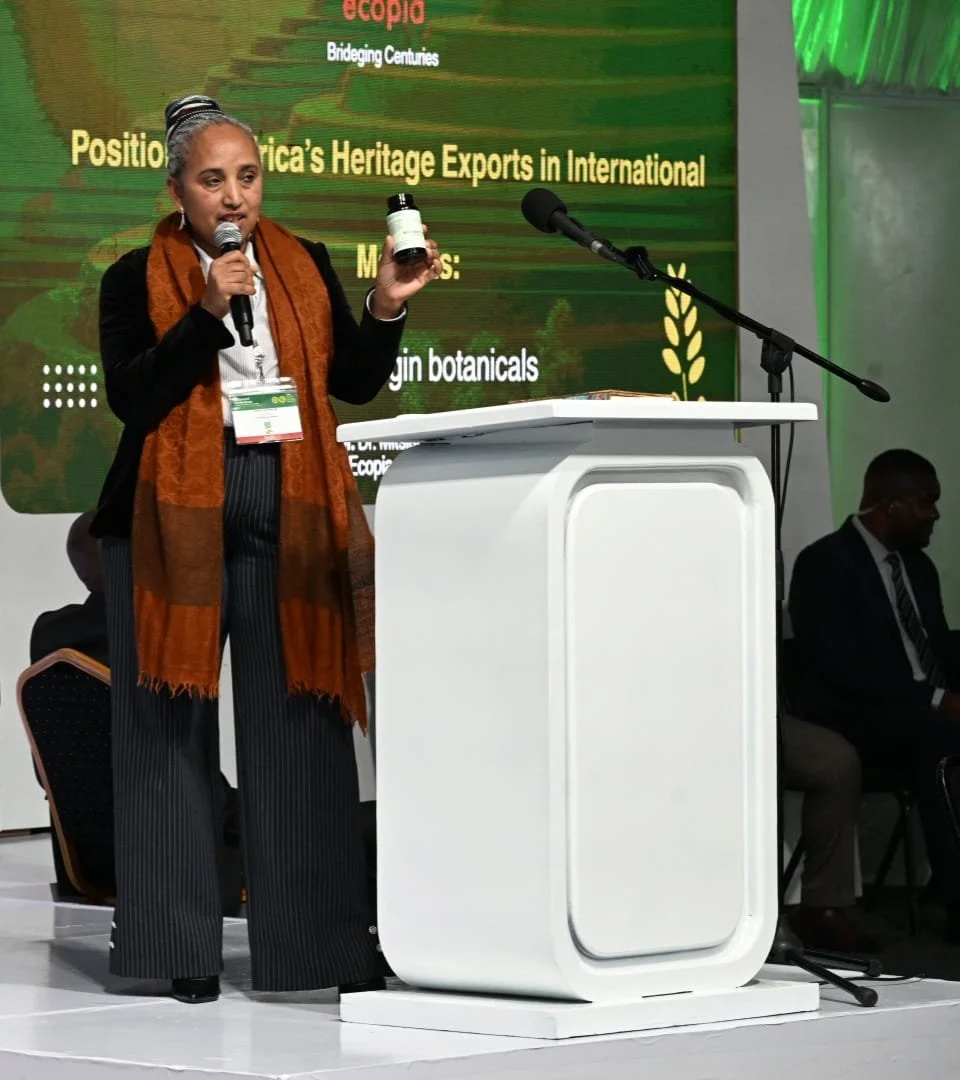
Our Mission
Ecopia unlocks the untapped potential of Ethiopia’s biodiversity in organic fruits, vegetables, and herbs. By combining simple conservation techniques with mobile technology, we empower small-scale farmers—especially women—to improve their livelihoods and bring the true value of their products to market.
Why Ecopia?
Sustainable Impact: We connect 16th-century farming traditions with 21st-century markets.
Healthier Living: Promoting organic food for a diversified, healthier lifestyle.
Farmer-Centric: Over 90% of our products are sourced from Ethiopian organic farmers.
Our Vision
To become the bridge that transforms Ethiopia's organic farming heritage into a global standard for sustainable agriculture, empowering generations of farmers while nourishing communities worldwide.

Ecopia Ethiopia
Key Partners and Clients:
Ecopia Ethiopia is our first company under Ecopia Group, founded in 2006 to enable farmers to reduce post-harvest losses through value addition. To date, the firm has trained more than 15,000 farmers and established 12 production sites across the Ethiopian countryside.
Leveraging our expertise, the firm now sells and distributes its products in both the European Union and Ethiopia. Furthermore, we have expanded into sourcing services for German phytopharmaceutical as well as food and beverage companies, working with our suppliers in Ethiopia and an extended network of partners in Uganda, Ghana, and Nigeria.
As one of the firms with the foremost expertise in light manufacturing in the Ethiopian countryside and agricultural value chains, we work closely with the Ministry of Agriculture and the Ministry of Industry in both policy advisory and implementation support for our ongoing activities.

Ecopia Value Chain
Key Partners and Clients:
Ecopia Value Chain (EVC) is one of Ecopia Group’s most exciting new ventures. Originally developed to help the Ethiopian coffee sector address the challenges posed by the EUDR regulation, which threatens up to 40% of Ethiopia’s coffee exports, it has quickly evolved into a comprehensive digital platform for managing agricultural workflows.
In partnership with the Seratera Consortium, the Ministry of Agriculture, MasterCard, and Safaricom M-Pesa, we are now expanding EVC into a fully vertically integrated agricultural management tool covering production, input purchasing, certification, international and local sales, insurance, and loans.
Within just six weeks of launch, EVC achieved a 15% market share among Ethiopian coffee farmers, successfully onboarding 300,000 farmers. EVC is set to become a key growth driver for the Ecopia Group. With a long-term partnership now established with the East African Farmers Federation (EAFF), we have access to over 25 million farmers across the IGAD region to be integrated in the coming years.

Ecopia COnsultancy
Key Partners and Clients:
With market and project environments in recent years having become increasingly dynamic and volatile, we have leveraged our existing networks and deep local market expertise to continue delivering value for our clients.
Our government consultancy projects focus on policy advisory for the Ethiopian government, particularly in the areas of access and benefit sharing, legislative frameworks for herbal medicinal plants, and research commercialization.
In collaboration with NGOs and other international organizations, we have had the privilege of serving as an implementation partner for various initiatives — a highlight being our work with UNESCO and the Ethiopian government in establishing the Lake Tana UNESCO Biosphere Reserve.
More recently, we have embarked on a new project with the China–BRICS Science and Innovation Incubation Park for the New Era in Xiamen. With Ethiopia now a member of BRICS, we are proud to contribute to building bridges for young entrepreneurs through our Seratera Consortium.
Lastly, we hold a range of other mandates covering construction, government procurement, and project advisory across the IGAD region.

3a industries
Key Partners and Clients:
Ethiopia stands at the threshold of a transformative industrialization phase, offering massive opportunities for private entrepreneurs. By leveraging its abundant natural resources,
Ecopia Group established 3A Industries as a spinout to capitalize on Ethiopia’s 1.4 million hectares of bamboo forests and address three critical supply chain gaps:
Biofuel pellets
Paper
Bioethanol
We are preparing to break ground on our first biofuel pellet factory in Benishangul-Gumuz, where the regional government has allocated 150,000 hectares of bamboo forest for the project. This factory will play a key role in reducing deforestation driven by charcoal demand, while serving as the cornerstone for future paper and bioethanol production.

Ecopia Pharma
Key Partners:
With Ethiopia’s population projected to surpass 200 million by 2050, the country stands on the brink of a healthcare transformation. This demographic momentum is set to significantly expand Ethiopia’s pharmaceutical market, which is currently growing at a compound annual growth rate (CAGR) of 10% between 2025 and 2030. By 2030, the market is expected to reach USD 4 billion.
To position ourselves for this explosive opportunity, we have established partnerships with key government bodies, particularly the Armauer Hansen Research Institute (AHRI), focused on research commercialization, drug approvals, and drug manufacturing.
In 2026, Ecopia Group plans to enter the sector at scale — covering distribution, telemedicine, manufacturing, and research — together with its new partners in the industry.

Ecopia Financial Technologies
Key Partners and Clients:
While Africa’s fintech landscape is increasingly competitive, structural inefficiencies, underbanked populations, and fragmented legacy systems leave vast room for innovation. Our strategy unites three complementary growth engines — cross-border remittances, digitalized microfinance, and Shariah-compliant finance — under one interoperable ecosystem. This integrated approach positions us not merely as a financial service provider but as the digital infrastructure backbone for inclusive finance in Africa.
We are currently rolling out our Milly Money Remittance service in partnership with several Ethiopian banks, alongside the Smart Core Paperless Banking platform. In Q3 2026, we are scheduled to launch our digitalized microfinance tech stack, offering end-to-end services for small and medium-sized microfinance institutions. This initiative aims to help bring the continent’s 350 million unbanked people into the formal financial sector.
Our solutions are developed and managed through our subsidiary Ticker Tape Technologies, based in Addis Ababa.

Seratera COnsortium
Key Partners:
Seratera’s mission is to close the post-graduate unemployment gap by fostering startup incubation and practical innovation across Ethiopia. Supported by the Ministry of Education, Seratera is a founding partner of the National University Incubation Consortium and holds a national mandate to expand its incubation network to 42 universities across the country.
Building on existing initiatives at universities such as Jimma, Bahir Dar, Hawassa, Mizan Tepi, Bonga, and Gambella, Seratera aims to unify and strengthen Ethiopia’s innovation ecosystem.
Our latest expansion, in partnership with the Addis Ababa Science and Technology University (AASTU), is the establishment of a Business Incubation Centre in Addis Ababa — which, alongside student startups, will also host our own spinouts and early development-stage divisions.

our Community Action
We are on a mission to build an inclusive and innovative organic agriculture processors community where the youth and women are actively involved environmental and sustainable income and revenue generation. This is achieved through our 6 strategic objectives: on hand demonstration, creating products demand and market based, use technology to bridge the Ethiopian agriculture from informal to formal sector, educate and enhance on processing technologies, enhance sustainability through bio economy and promote environmental sustainability measures through all the actions.








![Enterprise Management(1)[1].png](https://images.squarespace-cdn.com/content/v1/67ea30c9a33e6143595c2fa3/d0095370-639e-44ac-ba00-ed0cc8d003eb/Enterprise+Management%281%29%5B1%5D.png)
































